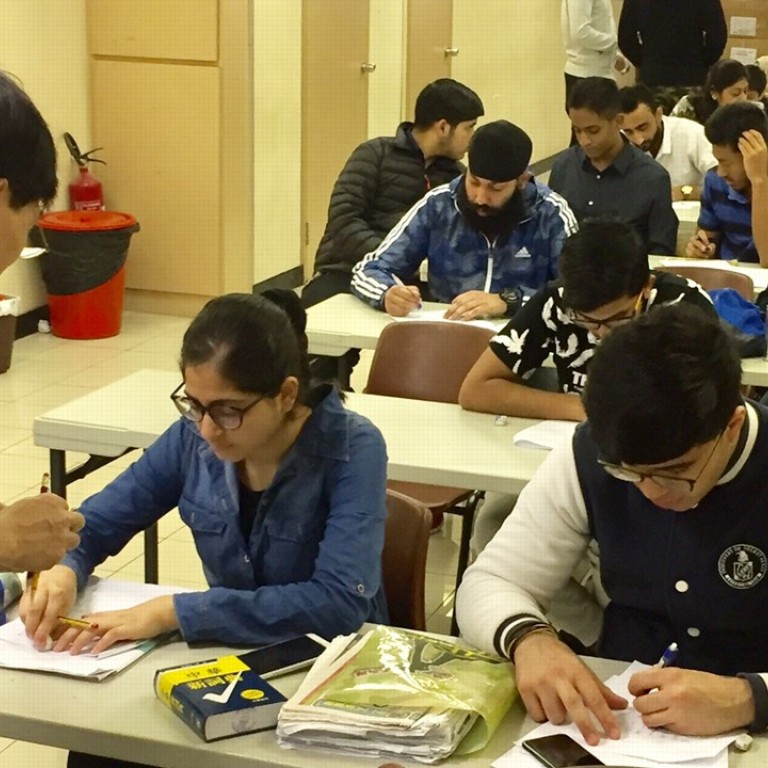
Letters to the Editor, March 22, 2018
Lowering the bar is just an easy way out
With Chinese language requirements for another 22 types of government jobs lowered, this brings to 53 the number of categories of civil service positions now more accessible to non-Chinese permanent residents. The eased requirements apply to jobs like that of an analyst, programmer or treasury accountant, or those involving technical or operational duties, such as a lab attendant.
However, while this will definitely open up more doors, it does not address the problem of the language barrier, the main reason ethnic minorities are overlooked for many jobs, whether in the public or the private sector.
Many of them may actually speak Cantonese fluently, but cannot read or write traditional characters, which affects their ability to go to university and get a better job.

Greater emphasis on teaching Cantonese as a second language to the city’s non-Chinese-speaking population from an early stage is needed to solve this problem.
Continuing with the simplified curriculum for ethnic minorities in local schools will not help them to ever be able to match the standards of their Chinese peers.
Dennis Fan, Tseung Kwan O
Let passengers choose between Uber and taxis
The entry of Uber into the local market is a natural development of technology in the modern age. It should be accepted as moving with the times.
Passengers who travel long distances and want to book a return journey find the ride-hailing service very helpful.
Those who need passenger service late at night benefit also from its easy availability.
On the other hand, the majority of Hong Kong taxis have remained in non e-mode and can be hailed on the roads. They are cheaper and also accessible in almost every corner of the city.
These two services can complement each other; they do not have to clash. It is a matter of passenger choice. Having both Uber and the iconic Hong Kong taxis on the road would be best for both residents and tourists.
Jacqueline Kwan, Mid-Levels
Facebook took your data? But you posted it
The question of what data Facebook permitted to be used by third parties, and how everyday users of the site understood those permissions, is once again under the spotlight.
It’s clear that our private lives are being made public by social networking sites. But why blame Facebook, Tinder, and the rest? It is we who seek instant recognition by posting our personal lives and data on social media.
Rajendra Aneja, Mumbai
Trade pact may fail without US or China
Firstly, China and the US are not in the CPTPP. Bloc members will need to be cautious when they aim to act in self-interest by lowering tariffs, as they will still need to balance relations with China and the US.
The second reason for its failure may be due to its weaker influence and worldwide impact than the WTO and the Asia-Pacific Economic Cooperation forum.
Lastly, Japan’s international credibility has been weakened by a cronyism scandal surrounding Prime Minister Shinzo Abe, which could affect his ruling party’s grip on power and jeopardise the future of the CPTPP, which Abe went all out to promote.
Jiang Mengyu, Kowloon
Trump tariffs could come home to roost
I believe analysts predicting a trade war between America and China, after the US imposed stiff import tariffs to reduce its trade deficit, are not being rational.
In 2016, US-China bilateral trade reached nearly US$580 billion. This volume could not have been reached without cooperation between the two countries.
Speaking after the National People’s Congress, Premier Li Keqiang also disagreed with those who want a trade fight with America. He said there can be no winners in a trade war and called for a rational, not emotional approach.
In fact, US steel tariffs will not impact China directly as much they might the European Union, South Korea and Brazil. The move may also see a lot of American workers lose their jobs.
Remember that the last American trade war only deepened the Great Depression.
Tong Wei, Kowloon Tong

